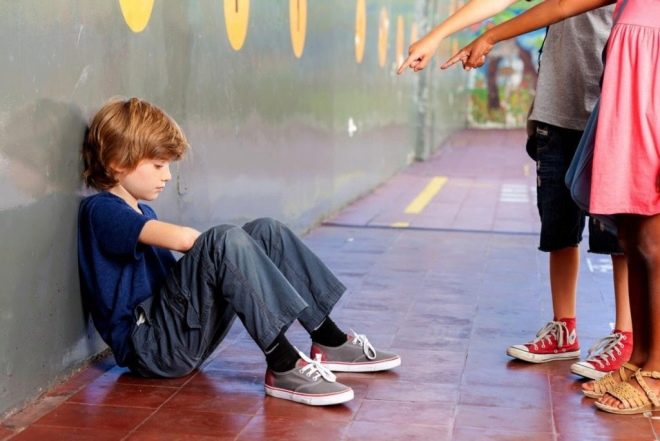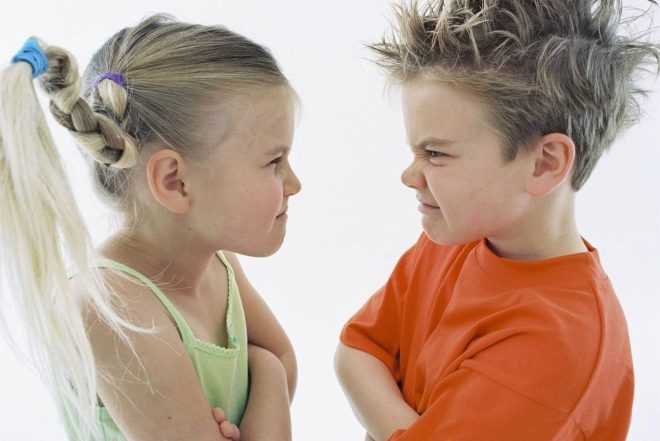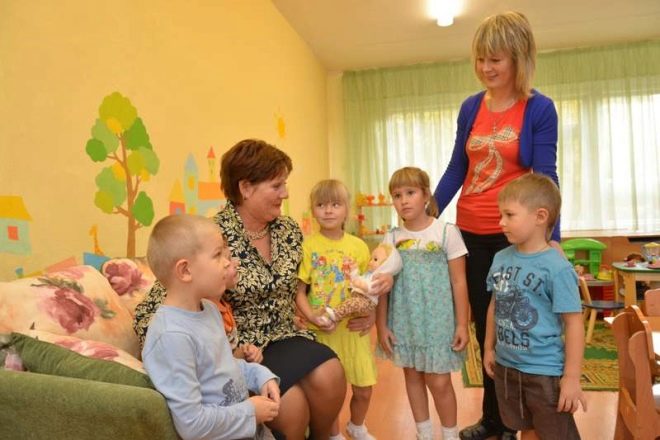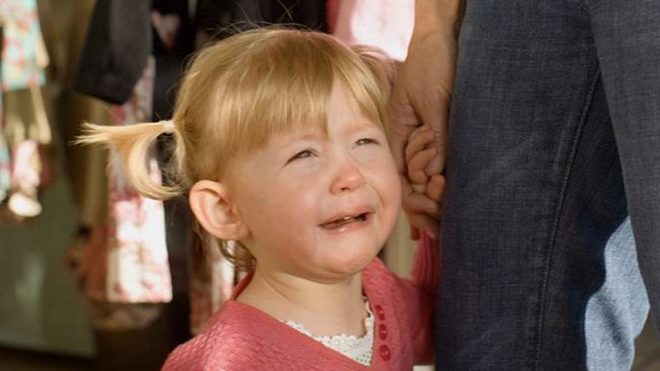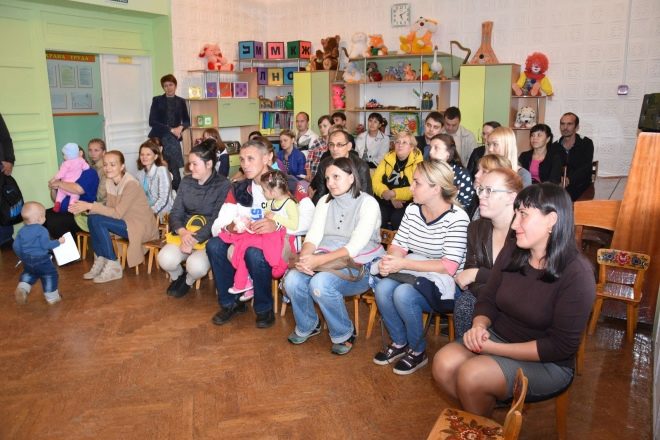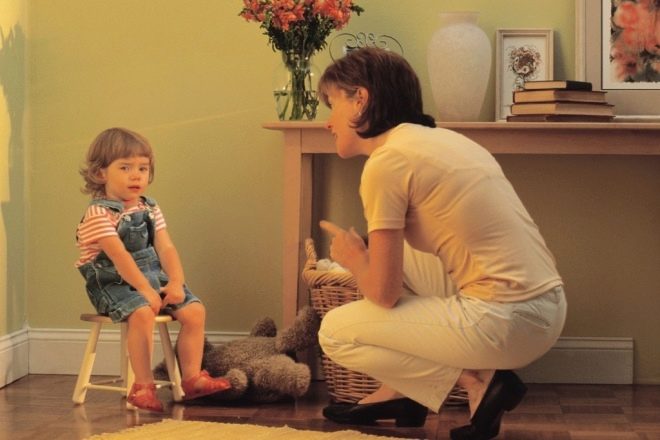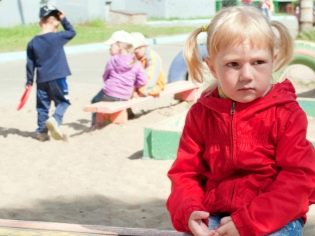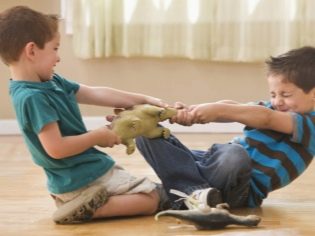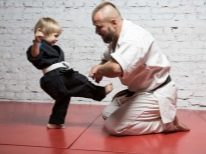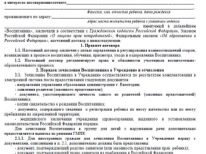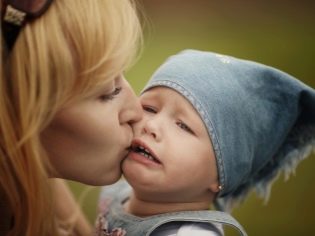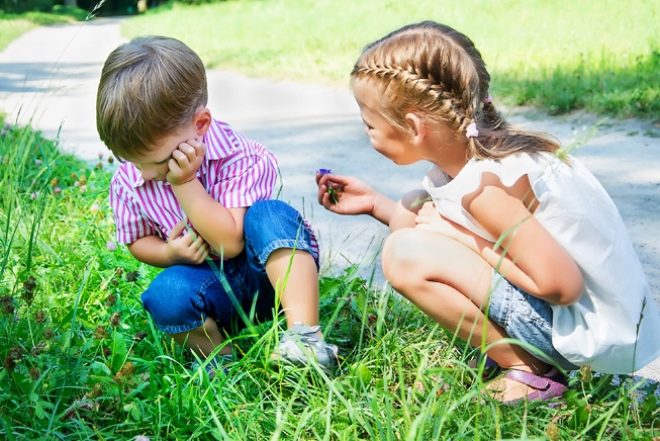What to do if a child is hurt in kindergarten?
The situation when a kid complains about offenders in kindergarten is quite widespread. Some parents immediately run to sort out the relationship with the persecutor, his parents, write a statement to the prosecutor's office, the police, demanding retribution. Others try not to listen to children's complaints, believing that the child comes up with all this in order to justify their unwillingness to go to preschool. Both those and others act not absolutely correctly.
In this article we will talk about what needs to be done if the child is offended in the children's team.
First steps
First you need to figure out the size of the "disaster": do not ignore the complaints of the son or daughter of a certain Vasya or Kohl who fights, selects toys, bites or spits your baby into soup. Ask the toddler as much as possible about who Kolya-Vasya is, whether he offends other children or is limited only by your child, how his name is, under what circumstances the aggressor begins to move on to actions, how often he behaves in this way.
Do not rush to draw conclusions and tell the child that Vasya-Kolya is a bad boy. It is necessary to understand everything soberly.
When the toddler was offended, and through tears, sobbing, he talks about it, it’s quite natural for the parents ’desire to rush to the defense, to punish everyone and everything. But do not rush: it depends on how you act now that your child can learn how to react correctly to aggressors and offenders, and there will be many more of them in his life.
Let us analyze how approximately the algorithm of actions of the mother (father) should be.
- We speak with the tutor. We ask him the same questions that we had previously asked our own child, at the same time we note whether your child was truthful in everything. In an interview with a teacher, it is important to find out how Kohl-Vasya is aggressive towards other children, whether there are objective circumstances that can explain his behavior, and whether your child himself provoked him. If the teacher doesn’t know anything about the conflict, you need to ask her to observe your child’s relationship with the particular “abuser”, transfer the conversation for a couple of days. If the teacher is aware of what happened, he should be reminded that communication with the parents of the aggressor is the task of him, the educator, to insist on such a conversation.
- Do not talk to the offender, do not quarrel with his parents. Very often, angry mothers and fathers begin to scold someone else's child or wait for the arrival of his parents, reprimanding them with raised voices. Remember that Kolya-Vasi's parents will also protect their child. The more aggressively you attack them, the more actively they will defend. Constructive conversation does not work.
The teacher, the psychologist of the children's institution, should speak with the parents and their child; they may even recommend parents to show the child to the specialists in psychocorrection and behavior correction.
- Raise a question at a parent meeting and talk with other parents, if the teacher’s conversation did not bring the desired result. According to the collective appeal of moms and dads, for their signatures addressed to the manager there is an opportunity to withdraw from the group a problem aggressive pupil who does not want to behave respectfully towards others in any way. But no one has the right to deduct a baby. If there is no second group of your age in the kindergarten, it will be legally impossible to translate the “aggressor”.
- If all else fails, we turn to the manager with a statement. and a request to make an appeal to the Commission on Minors.The abuser’s parents, who refuse to take action against their child, because of which other children in the group suffer, will deal with police officers and representatives of the education department.
How to help your baby?
The algorithm described above is an external action. But you will need more internal actions that will help support your child in a difficult situation for him.
Support the child, tell me that you are entirely on his side.
And then choose one of the tactics that will allow the child to teach himself to defend himself, because you can not attend with him all day long while he is in kindergarten.
Psychologists have noted several techniques.
"The method of the border guard"
Teach your son or daughter to clearly describe personal boundaries for others - “This is mine, you can’t touch it! I do not like it. I will not do this! ” The child should not swallow insults, it is necessary to learn to say boldly to the “attacker” that his actions are ugly and unpleasant. The child must clearly assimilate the "magic" childish phrase: "I do not play with you!".
Allied search method
In a difficult situation, the child must seek allies and helpers. He must learn to speak the problem and call for help. At the same time, it is important to clarify that between a sneak who runs to complain to a teacher on any occasion without him, and a normal person who really needs help is a big difference.
Help from elders should be asked only when other measures did not help.
Conflict exit method
Adults are well aware that in some situations it is better and safer to retreat. This should know and child.
If the abuser is very aggressive (bites, fights, hurts), it is better to bypass him, not allowing him to violate personal boundaries.
The method of "similar effects"
This is a very controversial method, which is to teach the child to give change. If you hit - hit back, pinched - pinch back. Usually, the aggressors act flawlessly, but it can harm your child. After all, children do not understand where the border between permissible self-defense and real aggression lies, and they can become the same aggressors. Not commensurate with the forces, they can cripple the offender and cause him serious damage.
The preschooler who is trained in all these methods and who can voluntarily choose one of them, depending on what the situation requires, can defend himself the best.
Tips for parents
But the main advice is for parents, only they can resolve the situation.
- Despite all the arguments, fathers usually teach their children to give change physically. This is also a useful skill, but you need to be extremely careful with it. In most cases, if an aggressive child in a group does not understand the words, does not listen to the remarks of the caregiver or the nurse, and the words of his own parents mean little to him, it is better to teach the child how to avoid conflict.
- Pay attention to the contract on the provision of educational services (you signed it when you made a kindergarten in kindergarten). It clearly outlines the norms of acceptable behavior for pupils. If the actions of the offender are contrary to the contract, pay attention to the attention of the educator, the head. This may be the basis for the management of the preschool institution to terminate the contract with the parents of the unmanaged pupil.
- Never be ashamed of your little son who came from kindergarten with a bruise or abrasion. Some fathers and grandfathers “sin” with this: they start appealing to his masculine top (“You're a man! Be patient! Don't cry! Stop complaining! Understand yourself!”). The child will feel very lonely without the support of the closest people, and this will in no way contribute to bringing up courage in him.
- Talk with your tutor more often not about how bad Vasya-Kolya is, but about how your child behaves.There are quite a few reasons for mockery in the children's team (an unusual surname, the name of your child, especially his appearance - red, with freckles, clothes in which you send your baby to kindergarten, and so on). If the reason is recoverable, do it: wonderful knitted shorts with big bows at the knees, which the grandmother gave, may be pleasant to the grandmother, but for a child it is worse than torture, because it is because of these bows that people laugh at him. There are also children who themselves provoke others to aggression (they behave quietly, peacefully, but will not fail to put the “pig” on the same age as possible). Do not forget to work on such defects in your own child.
- To increase the confidence of the kid in their abilities will help sports - wrestling, martial arts, swimming, athletics. Usually, kids who are implemented in sports, in children's groups behave more confidently, clearly outline their boundaries and can stand up for themselves.
- If you had a chance to face the abuser's parents, do not divide the children into “your child” and “my child”, you have a common problem: one kid is offended, the other is an offender. But there are always two involved in the conflict, it will be good if efforts can be combined.
The main thing - teach the child to be generous and forgive.
A person who does not know how to forgive is less successful in life, often suffers from a wide variety of chronic diseases caused by hidden, long-standing, deep resentment.
If the abuser asks for forgiveness, it is best to forgive him and no longer remember a bad deed.. So it will be better for everyone and first of all for your child.
About psychiatric conflicts and how to overcome them tells the psychologist in the video below.

